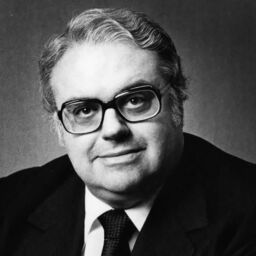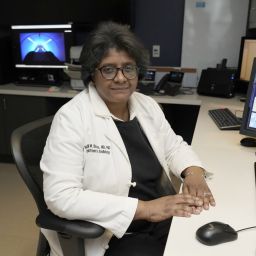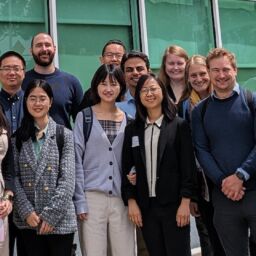On October 28, 2020, Victoria Prince, PhD, dean and director of Graduate Affairs at the Division of the Biological Sciences (BSD), moderated a virtual discussion about graduate education and programming at the BSD with Kay MacLeod, PhD, director of the Multi-disciplinary Training Program in Cancer Research (MTCR); Tobin Sosnick, PhD, co-director, Graduate Program in Biophysical Sciences; and recent graduate, Larischa de Wet, SM’20, PhD’20.
Ranked 13th in the nation according to U.S. News & World Report, the BSD’s graduate programs focus on training the next generation of scientists to be creative, independent researchers who can make an impact in multiple industries. Approximately 85 percent of the BSD’s students complete their PhD program, compared to the national average of about 60 percent. BSD’s Office of Graduate Affairs offers three unique programs to bolster recruitment and training, and enhance the experience of its graduate students: the Quantitative Bootcamp at the Marine Biological Laboratory (MBL), the myCHOICE program, and the Graduate Recruitment Initiative Team (GRIT).
Dr. McLeod described the recruitment process for the BSD’s Cancer Biology program, explaining that an ideal candidate is not just intelligent, but is also passionate, driven, and resilient. She also discussed the importance of diversity in recruitment, noting that different experiences and skill sets create synergy across teams, which propels research forward.
Dr. de Wet, a recent alumna of the Cancer Biology program, who was a widely sought-after PhD candidate, explained that having a focused cancer biology program and an opportunity to work directly with on-site physicians and clinicians is what drew her to the University of Chicago. She also shared her unique training experience, which gave her the opportunity to go into the clinic and observe problems that patients were facing and then develop the research to solve those problems.
Dr. Sosnick discussed how the BSD’s graduate program in the Biophysical Sciences trains students with a strong background in physics and chemistry to study biological problems. He also commented on the program’s unique dual mentorship program, which provides trainees with a mentor in multiple labs.
Another important topic discussed was the distinctive BSD career planning program, myCHOICE. Dr. de Wet spoke about her participation in the three pillars of the program—exposure, education, and experience—and how her myCHOICE experiences helped inform her of career paths outside of academia and led her to a career in consulting.
The program concluded with Dr. Prince describing the downward pressure on lab size and stability due to diminishing NIH resources, rising costs of research, and the COVID-19 pandemic. This has increased the importance of other revenue streams, primarily philanthropy, to allow the BSD to support graduate students, explore new directions, and pursue high-risk, high-reward ideas—which all contribute to a cycle that helps attract the best and brightest students and faculty.
If you would like to support the students, faculty, and programming of the Division of the Biological Sciences, please make a gift online via our secure site or call 1.888.UCHICAGO (1.888.824.4224).





